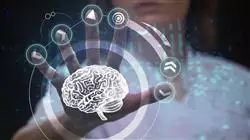University certificate
Scientific endorser

The world's largest faculty of information technology”
Introduction to the Program
Become one of the most in-demand professionals of today. Specialize with thi complete Professional master’s degree in Artificial Intelligence and Knowledge Engineering"

Developments based on Artificial Intelligence have reached numerous applications within the field of engineering. From the automation of numerous procedures in Industry and companies, to process control itself. This means that engineering professionals need to know and master the operation of these complex techniques.
This essential knowledge also becomes the first step to gain access to the development capacity of this type of technology.
Throughout this program, a real working scenario is offered in order to be able to evaluate the convenience of its application in your own project, assessing its real indications, its way of development and the expectations you may have regarding the results.
Through experience you will learn how to develop the necessary knowledge to advance in this field of work. This program, which necessarily requires experience, is reconciled through distance learning and practical teaching, offering a unique option to give your CV the boost you are looking for...
Join the elite with this highly effective instructional program and open new avenues for your professional advancement"
This Professional master’s degree in Artificial Intelligence and Knowledge Engineering, contains the most complete and up-to-date program on the market. Its most notable features are:
- The latest technology in online teaching software
- A highly visual teaching system, supported by graphic and schematic contents that are easy to assimilate and understand
- Practical cases presented by practising experts
- State-of-the-art interactive video systems
- Teaching supported by telepractice
- Continuous updating and recycling systems
- Autonomous learning: full compatibility with other occupations
- Practical exercises for self-evaluation and learning verification
- Support groups and educational synergies: questions to the expert, debate and knowledge forums
- Communication with the teacher and individual reflection work
- Availability of content from any fixed or portable device with internet connection
- Supplementary documentation databases are permanently available, even after the program
A Professional master’s degree that will enable you to work in all areas of Artificial Intelligence and Knowledge Engineering with the solvency of a high-level professional"
Our teaching staff is made up of professionals from different fields related to this specialty. In this way, the intended objective of instructional updating is achieved. A multidisciplinary faculty of trained and experienced professionals in different environments, who will develop the theoretical knowledge efficiently, but above all, will put at your service the practical knowledge derived from their own experience: one of the differential qualities of this program.
he efficiency of the methodological design of this Professional master’s degree, enhances the student's understanding of the subject. Developed by a multidisciplinary team of e-learning experts, the Method integrates the latest advances in educational technology. In this way, you will be able to study with a range of comfortable and versatile multimedia tools that will give you the operability you need in your training.
The design of this program is based on Problem-Based Learning, an approach that views learning as a highly practical process. To achieve this remotely TECH will use telepractice. with the help of an innovative interactive video system and Learning from an Expert you will be able to acquire the knowledge as if you were facing the scenario about which you are currently learning. A concept that will make it possible to integrate and fix learning in a more realistic and permanent way.
With a methodological design based on teaching techniques proven for their effectiveness, this innovative Professional master’s degree in Artificial Intelligence and Knowledge Engineering will take you through different teaching approaches to allow you to learn in a dynamic and effective way"

Our innovative telepractice concept will give you the opportunity to learn through an immersive experience, which will provide you with a faster integration and a much more realistic view of the contents: “learning from an expert"
Why study at TECH?
TECH is the world’s largest online university. With an impressive catalog of more than 14,000 university programs available in 11 languages, it is positioned as a leader in employability, with a 99% job placement rate. In addition, it relies on an enormous faculty of more than 6,000 professors of the highest international renown.

Study at the world's largest online university and guarantee your professional success. The future starts at TECH”
The world’s best online university according to FORBES
The prestigious Forbes magazine, specialized in business and finance, has highlighted TECH as “the world's best online university” This is what they have recently stated in an article in their digital edition in which they echo the success story of this institution, “thanks to the academic offer it provides, the selection of its teaching staff, and an innovative learning method aimed at educating the professionals of the future”
A revolutionary study method, a cutting-edge faculty and a practical focus: the key to TECH's success.
The most complete study plans on the university scene
TECH offers the most complete study plans on the university scene, with syllabuses that cover fundamental concepts and, at the same time, the main scientific advances in their specific scientific areas. In addition, these programs are continuously being updated to guarantee students the academic vanguard and the most in-demand professional skills. In this way, the university's qualifications provide its graduates with a significant advantage to propel their careers to success.
TECH offers the most comprehensive and intensive study plans on the current university scene.
A world-class teaching staff
TECH's teaching staff is made up of more than 6,000 professors with the highest international recognition. Professors, researchers and top executives of multinational companies, including Isaiah Covington, performance coach of the Boston Celtics; Magda Romanska, principal investigator at Harvard MetaLAB; Ignacio Wistumba, chairman of the department of translational molecular pathology at MD Anderson Cancer Center; and D.W. Pine, creative director of TIME magazine, among others.
Internationally renowned experts, specialized in different branches of Health, Technology, Communication and Business, form part of the TECH faculty.
A unique learning method
TECH is the first university to use Relearning in all its programs. It is the best online learning methodology, accredited with international teaching quality certifications, provided by prestigious educational agencies. In addition, this disruptive educational model is complemented with the “Case Method”, thereby setting up a unique online teaching strategy. Innovative teaching resources are also implemented, including detailed videos, infographics and interactive summaries.
TECH combines Relearning and the Case Method in all its university programs to guarantee excellent theoretical and practical learning, studying whenever and wherever you want.
The world's largest online university
TECH is the world’s largest online university. We are the largest educational institution, with the best and widest online educational catalog, one hundred percent online and covering the vast majority of areas of knowledge. We offer a large selection of our own degrees and accredited online undergraduate and postgraduate degrees. In total, more than 14,000 university degrees, in eleven different languages, make us the largest educational largest in the world.
TECH has the world's most extensive catalog of academic and official programs, available in more than 11 languages.
Google Premier Partner
The American technology giant has awarded TECH the Google Google Premier Partner badge. This award, which is only available to 3% of the world's companies, highlights the efficient, flexible and tailored experience that this university provides to students. The recognition as a Google Premier Partner not only accredits the maximum rigor, performance and investment in TECH's digital infrastructures, but also places this university as one of the world's leading technology companies.
Google has positioned TECH in the top 3% of the world's most important technology companies by awarding it its Google Premier Partner badge.
The official online university of the NBA
TECH is the official online university of the NBA. Thanks to our agreement with the biggest league in basketball, we offer our students exclusive university programs, as well as a wide variety of educational resources focused on the business of the league and other areas of the sports industry. Each program is made up of a uniquely designed syllabus and features exceptional guest hosts: professionals with a distinguished sports background who will offer their expertise on the most relevant topics.
TECH has been selected by the NBA, the world's top basketball league, as its official online university.
The top-rated university by its students
Students have positioned TECH as the world's top-rated university on the main review websites, with a highest rating of 4.9 out of 5, obtained from more than 1,000 reviews. These results consolidate TECH as the benchmark university institution at an international level, reflecting the excellence and positive impact of its educational model.” reflecting the excellence and positive impact of its educational model.”
TECH is the world’s top-rated university by its students.
Leaders in employability
TECH has managed to become the leading university in employability. 99% of its students obtain jobs in the academic field they have studied, within one year of completing any of the university's programs. A similar number achieve immediate career enhancement. All this thanks to a study methodology that bases its effectiveness on the acquisition of practical skills, which are absolutely necessary for professional development.
99% of TECH graduates find a job within a year of completing their studies.
Professional Master's Degree in Artificial Intelligence and Knowledge Engineering
.
Technological advances have enabled the automation of many processes in Industry and companies, including process control. This means that professionals in Computer Science must consolidate their skills in these complex techniques. Thus, this Professional Master's Degree in Artificial Intelligence and Knowledge Engineering will provide you with a realistic view of AI applications, evaluating the suitability of its implementation in your own projects.
Master Boolean Satisfiability by examining advanced case studies
.
Through the Professional Master's Degree in Artificial Intelligence and Knowledge Engineering, you will be updated in all the indications, development and expectations of the results with the work through Artificial Intelligence. Likewise, you will go through the fundamentals of knowledge representation with the Semantic Web. Through this theoretical-practical experience, you will launch your professional career without having set foot a single day in on-site teaching centers. In fact, TECH will grant you the baton of managing your own academic time, so that you will be able to combine the program seamlessly with the rest of your activities.







